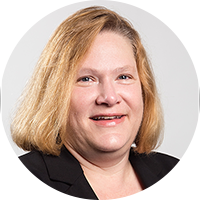
Phyllis Wojtusik, RN
Executive Vice PresidentReal Time Medical Systems
With over thirty-five years of health care experience in acute care, ambulatory care, and post-acute care, Phyllis has led the development of post-acute networks and participated in the Medicare Shared Savings Program and other value-based contract programs. Prior to joining Real Time Medical Systems, Phyllis led the development of a preferred provider SNF network for PENN Medicine Lancaster General Health. In this network she developed and implemented strategies that reduced total cost of care and readmissions while improving quality measures and patient outcomes. She utilized system approaches, clinical standards and care management tactics to improve coordination and transition of care while reducing post-acute length of stay in a network of non-owned SNFs. Phyllis also has experience in the physician practice where she worked for more than 15 years in a leadership role for a large successful geriatric practice. The practice expanded from two physician providers to more than 30 physicians and CRNPs under her leadership. She also led the development and coordination of a Geriatric Assessment program that focused on dementia diagnosis, treatment, and management. Phyllis’s clinical background includes spending 12 years in critical care as a nurse, nurse manager, and case manager. Phyllis speaks nationally and regionally on transitions of care, care coordination, and post-acute network development and management. Phyllis graduated from Lancaster General School of Nursing and Franklin and Marshal College with degrees in nursing and science.